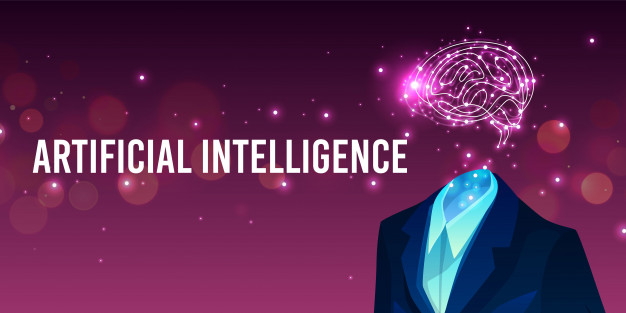Whether it is the quick-witted Google Alexa, clever self-driving cars or Tesla’s billion-dollar investments in the ‘city on Mars’, Artificial Intelligence (AI) has taken the modern technological world by storm. Businesses, hospitals, and even federal and military institutions are increasingly using AI to utilize data to their strategic advantage.
What is Artificial Intelligence?
Artificial Intelligence (AI) is an imitation of human intelligence processes by computer systems to carry out automated actions and make complex decisions. Many digital marketers are now dipping their toes into the AI technology as well. In fact, 58% of CMOs believe that within the next five years, companies will need to compete in the AI space to succeed.
AI Marketing has the potential to offer personalized customer experiences and targeted marketing by side-stepping the costs of traditional unwanted marketing campaigns. With AI marketing strategies ready-to-dominate the digital world, time is now ripe to make use of this phenomenal technology.
Here are seven ways you can use AI technology to revolutionize your marketing strategies.
-
Automate mundane tasks that your sales team despises
Having each of your support or sales staff reply to individual customer queries can be grueling and time-consuming. You can utilize AI based marketing tools to automatically send canned responses to some of the basic customer queries. You can even automate lead follow-ups, pipeline management, meeting scheduling and data entry. This can free up more time for your sales team and allow them to focus on complex strategic tasks.
Furthermore, you can automate your marketing systems to send out email, text or social media advertisements in bulk as push notifications to your existing customers. This proves extremely handy for publicizing promotional campaigns, discount offers or new product launches. It also puts less time between you and your customers.
Gain an in-depth understanding of your customers

Another very important aspect of AI is Machine Learning (ML), whereby, computer systems analyze datasets to predict human behavior. You can incorporate machine learning in your marketing strategy to modify branding or advertising campaigns based on current consumer preferences.
ML allows you to track cursor movements and durations between each click visitors make on your website so you can predict which products are in high demand. You can even enable cookies to keep tabs on the websites your customer visit, the type of content they download and the ads they engage with.
This way, you can get a deeper insight into the psychographics of your target audience and modify your website content accordingly. It also helps improve the lead generation by targeting the right customers for your business.
With machine learning, Customer Relationship Management (CRM) problems are a thing of the past. It allows timely prediction of customer churn rate in case your existing customers cancel their subscriptions. You can even employ sentiment analysis to bank on favorable customer feedback, and request satisfied customers for referrals to their friends.
Optimize inbound digital marketing campaigns
Google makes use of RankBrain to sift through meaningful keywords from the vague search queries people type in the search bar. It also has an analytics module. You can use the AI-powered Google Analytics tools to dig deeper into the ambiguous keyword searches made by your existing or target customers.
You can later utilize trending keywords to generate content that attracts a more relevant audience to your website. This allows you to create semantically specific pages according to the search intent of users and offer a more personalized browsing experience on your website. With AI, you can land customers with a serious purchase intent onto your website and increase your conversion ratio.
Interact with customers in real-time

AI technology has revolutionized the way businesses interact with customers too. Most companies now use chatbots to communicate with leads on the website. You may remember them as adorable little pop-ups springing at the bottom right corner of your desktop to assist with purchases or product information. It’s loved by introvert buyers who are normally trying to avoid human communication.
Another example in online shopping is when you add some items to a cart, and the store shows you a list of recommended items that you may like to order. Yes, AI technology is behind that as well.
Use of natural language processing to recognize speech and interact verbally is also on the rise. An example of this is Google’s Alexa or Apple’s Siri. It is highly preferred by older or uneducated people who find it hard to type in the search bar. AI-powered speech recognition open avenues for businesses to advertise their products to a market that was initially hard to reach.
Offer AI-powered dynamic pricing
You might be familiar with Uber’s surge pricing at peak traffic hours or ever-changing airfares, and hotel and e-commerce rates. Whichever the industry, dynamic pricing has manifold benefits. It lets you sell at low prices to price-sensitive customers and also reap extra cash from high-end customers. You can morph your pricing strategy according to changes in consumer demand, time of purchase or additional services offered.
Many e-commerce industries squander around 246,000 hours trying to keep up with changing trends and prices. By using AI-powered dynamic pricing, you can automate this process and squeeze out that extra second. Intelligent algorithms also allow you to maintain a balance between undercutting your competitors and losing sales while you race to the bottom. It helps you keep adequate margins and reap good profits while you cater to the price sensitivity of your customers.
Facilitate sales with augmented reality
Many apparel, cosmetic and home improvement businesses today use augmented reality (AR) to give virtual representation to customers of the items they consider purchasing. Home Depot, for instance, uses a patented app to assist customers with making the purchase decision. It shows how items like patio furniture, faucets or a certain shade of yellow paint will look like in the home of their customers before they buy and install them.
This technology not only sparks excitement in the minds of consumers but also makes the whole buying process more enjoyable. Moreover, it greatly reduces remorseful feelings in buyers where they regret buying the wrong choice of products.
Monitor on-site consumer behavior
Many event management companies have started using computer vision, another increasingly popular stream of AI to track on-site attendee behavior. Facial detection sensors can be paired with emotional analytics to evaluate customers’ reactions when they’re browsing products on the premises of a business. You can even track attendees’ reactions on a product launch or sales conference to gauge how favorable your business or offerings are in the eyes of the public.
Use of computer vision to gather customer feedback is faster and more accurate than drawing subjective inferences from focus groups or online surveys. It measures individual rather than collective reactions, allowing you to personalize your marketing strategy.
AI takes action on your behalf
Marketers have access to multitudes of data but they’re never really sure how to utilize it correctly. With intelligent algorithms by your side, you have instant knowledge of what your customers want from you, what makes them feel more satisfied and engaged and which areas should you focus on.
As a busy marketer that has to wear so many hats, AI relieves you of extra burden and takes the action on your behalf while you work on drafting and achieving your long-term goals. Click here to more you can learn about Artificial Intelligence and Machine Learning.
Author Bio:
Kiran Ajaz is a technical writer and publisher at EZOfficeInventory, which offers an asset tracking software for SMBs, mid-sized businesses, enterprises and more. She is a guest writer and an MBA graduate. Kiran is enthusiastic about the way technology interacts with contemporary businesses and enables them to focus on core efficiencies.















